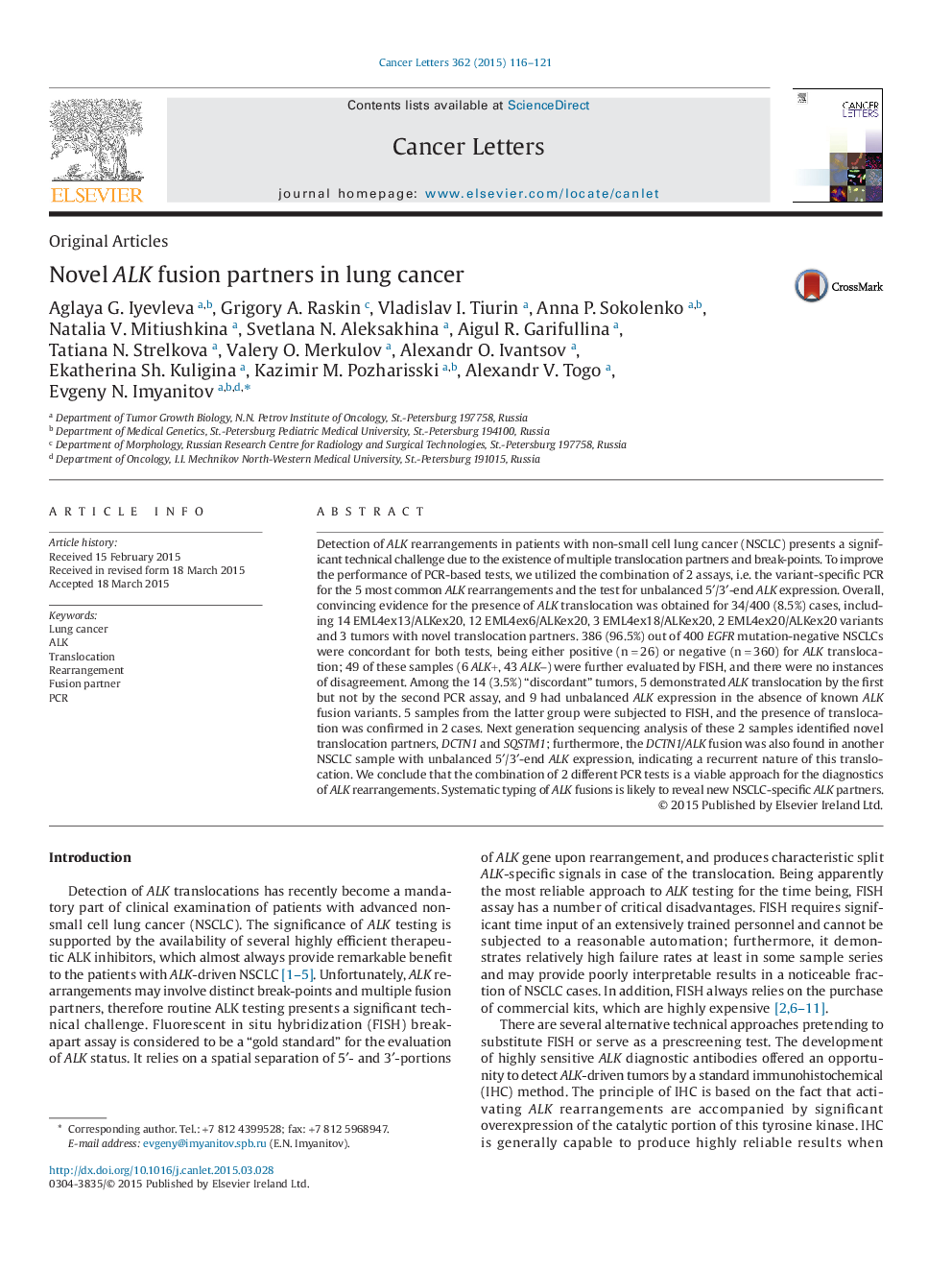| Article ID | Journal | Published Year | Pages | File Type |
|---|---|---|---|---|
| 2112484 | Cancer Letters | 2015 | 6 Pages |
•Combination of two distinct PCR assays is a highly reliable approach for detection of both known and new ALK translocations.•Two novel ALK fusion partners, DCTN1 and SQSTM1, have been identified.•Increased frequency of ALK rearrangements among female patients is attributed to the low prevalence of smoking, not to the gender per se.
Detection of ALK rearrangements in patients with non-small cell lung cancer (NSCLC) presents a significant technical challenge due to the existence of multiple translocation partners and break-points. To improve the performance of PCR-based tests, we utilized the combination of 2 assays, i.e. the variant-specific PCR for the 5 most common ALK rearrangements and the test for unbalanced 5′/3′-end ALK expression. Overall, convincing evidence for the presence of ALK translocation was obtained for 34/400 (8.5%) cases, including 14 EML4ex13/ALKex20, 12 EML4ex6/ALKex20, 3 EML4ex18/ALKex20, 2 EML4ex20/ALKex20 variants and 3 tumors with novel translocation partners. 386 (96.5%) out of 400 EGFR mutation-negative NSCLCs were concordant for both tests, being either positive (n = 26) or negative (n = 360) for ALK translocation; 49 of these samples (6 ALK+, 43 ALK−) were further evaluated by FISH, and there were no instances of disagreement. Among the 14 (3.5%) “discordant” tumors, 5 demonstrated ALK translocation by the first but not by the second PCR assay, and 9 had unbalanced ALK expression in the absence of known ALK fusion variants. 5 samples from the latter group were subjected to FISH, and the presence of translocation was confirmed in 2 cases. Next generation sequencing analysis of these 2 samples identified novel translocation partners, DCTN1 and SQSTM1; furthermore, the DCTN1/ALK fusion was also found in another NSCLC sample with unbalanced 5′/3′-end ALK expression, indicating a recurrent nature of this translocation. We conclude that the combination of 2 different PCR tests is a viable approach for the diagnostics of ALK rearrangements. Systematic typing of ALK fusions is likely to reveal new NSCLC-specific ALK partners.
